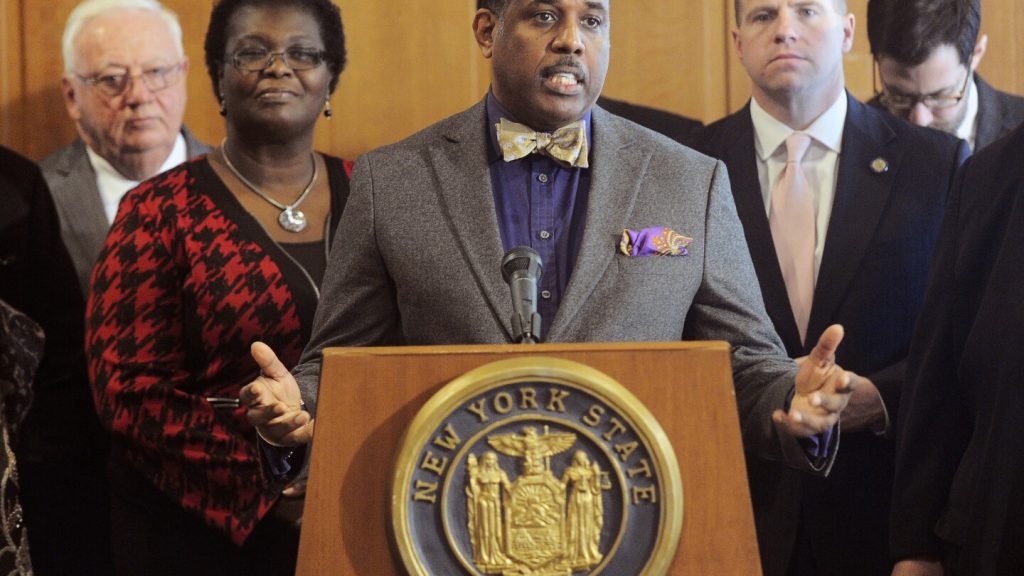A New York state senator, Kevin Parker, will not face charges after being accused of shoving disability rights advocate Michael Carey in the state capitol building last week. The incident occurred during a heated exchange between Parker and Carey, who had approached the senator to discuss supporting a piece of legislation. Parker allegedly grabbed Carey by the shoulders and shoved him, causing Carey to stumble back. Carey filed a complaint with the New York State Police, leading to an investigation. However, the police closed the investigation without filing any criminal charges, referring to it as a “disturbance.”
Carey and Parker reportedly spoke on Friday and resolved the issue in a “peaceable way.” Carey expressed his wish that the situation had not escalated to violence, emphasizing the importance of working through conflicts through peaceful means. This incident is not the first time Parker has been involved in violent behavior. In 2005, he was arrested on a third-degree assault charge for allegedly punching a traffic agent who gave him a ticket for double-parking. Additionally, in 2009, Parker was arrested and convicted of misdemeanor criminal mischief charges after chasing a New York Post photographer and damaging his camera, leading to his removal from his position as majority whip in the state legislature.
The lack of criminal charges against Parker in this recent incident has raised questions about accountability and consequences for violent behavior, especially among public officials. Parker’s history of aggression and confrontations with law enforcement and media personnel highlights a pattern of behavior that raises concerns about his fitness for office. Advocates like Carey have emphasized the importance of addressing such behavior among elected officials, particularly when it involves physical altercations. The resolution of the situation between Parker and Carey, while seemingly peaceful, may not fully address the underlying issue of accountability for violent behavior in a public setting.
The incident involving Parker and Carey also sheds light on the challenges faced by disabled advocacy groups in engaging with legislators and policymakers. Disability rights advocates often work tirelessly to ensure that the needs and concerns of disabled individuals are addressed in legislative processes. However, instances of aggression and violence, such as the altercation between Parker and Carey, can create barriers to effective advocacy and engagement. Moving forward, advocates may need to consider additional strategies for engaging with lawmakers while ensuring their safety and well-being in such interactions.
In response to the incident, Parker’s office did not provide any comment on the matter, leaving questions unanswered about the senator’s perspective on the altercation and the outcome of the investigation. The lack of transparency from Parker’s office raises concerns about accountability and communication with the public regarding actions taken by elected officials. Moving forward, stakeholders may seek greater accountability and transparency from lawmakers to ensure that incidents of violence and aggression are addressed appropriately and effectively to uphold the integrity of the legislative process. The resolution between Parker and Carey, while a step towards peaceful resolution, may prompt further discussions on the importance of accountability and ethical conduct among public officials.


